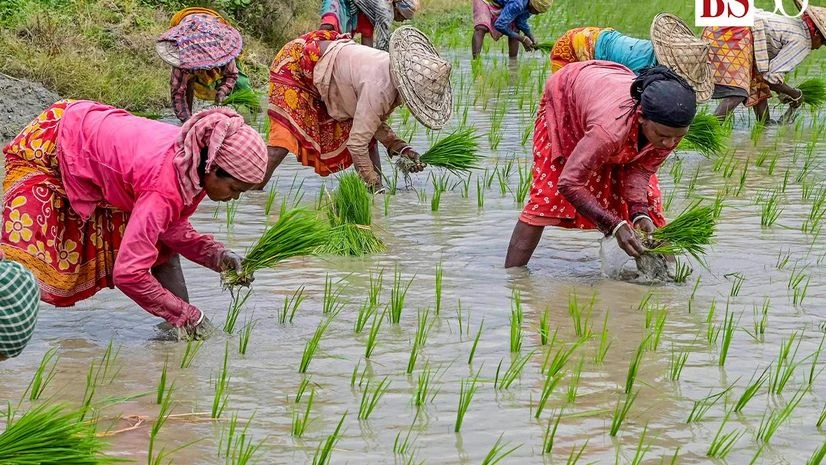The Indian government has earmarked financial incentives to promote land-related reforms across states, allocating Rs 10,000 crore for these efforts in rural and urban areas during the financial year 2024-25. An additional Rs 5,000 crore has been set aside for the creation of a comprehensive ‘farmers’ registry’.
These allocations will be distributed under the scheme for special assistance to states for capital investment during 2024-25. The Ministry of Finance has finalised and disseminated the guidelines for the scheme to states on August 9, according to a report by The Indian Express.
The Centre is focused on enhancing land governance and improving agricultural productivity through the digitisation of land records and the establishment of a robust farmer database.
Finance Minister Nirmala Sitharaman had earlier highlighted these priorities during her Budget Speech on July 23, indicating that the government’s initiatives would be instrumental in recording the details of 60 million farmers and their land holdings in the new registries.
India land reforms: A major push for digitisation
As part of the initiative, states are expected to carry out a series of land-related reforms. In rural areas, these include the assignment of a unique land parcel identification number (ULPIN), also known as Bhu-Aadhaar, for all land parcels; the digitisation of cadastral maps; and the surveying of map sub-divisions to reflect current ownership. Additionally, a comprehensive land registry is to be established, providing a more accurate and accessible record of land ownership.
In urban areas, states will receive financial incentives to digitise land records using Geographic Information System (GIS) mapping. The creation of an information technology-based system for property record administration, updating, and tax administration is also mandated under the scheme.
More From This Section
Support for working women’s hostels
Apart from land reforms, the Centre has allocated Rs 5,000 crore for the construction of working women’s hostels. This initiative is aimed at facilitating higher participation of women in the workforce. As outlined in the guidelines, state governments are responsible for providing land for these hostels free of cost or covering the cost of land acquisition. The operation and maintenance of the hostels will follow a public-private partnership (PPP) model, with ownership retained by the state government.
Uttar Pradesh is set to receive the highest allocation for this purpose, with Rs 382 crore, followed by Madhya Pradesh with Rs 284 crore, and Assam with Rs 226 crore.
Financial support for states
The Centre’s support to states extends beyond land reforms and women’s hostels. A fund of Rs 2,000 crore has been designated for the development of popular tourist centres, Rs 3,000 crore for incentives related to vehicle scrappage, Rs 15,000 crore to stimulate industrial growth, and Rs 1,000 crore for the development of the National Capital Region (NCR). Additionally, Rs 15,000 crore has been allocated to support states’ shares of centrally sponsored schemes, including urban and rural infrastructure projects.
Further incentives include Rs 4,000 crore for implementing the SNA Sparsh model for just-in-time release of funds under centrally sponsored schemes and Rs 25,000 crore for achieving targets fixed for capital expenditure in FY25.
The Rs 1,000 crore designated for the NCR’s development will be evenly distributed among Haryana, Uttar Pradesh, and Rajasthan, ensuring that these states receive equal support for infrastructure and development initiatives.
This broad array of financial incentives reflects the Centre’s commitment to driving growth and development across multiple sectors, with a strong emphasis on modernising land records and enhancing the socio-economic infrastructure of states across India.

)